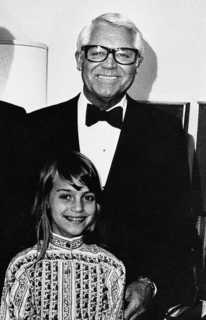A Quote by Mary L. Trump
The simple fact is that Donald is fundamentally incapable of acknowledging the suffering of others. Telling the stories of those we've lost would bore him. Acknowledging the victims of COVID-19 would be to associate himself with their weakness, a trait his father taught him to despise.
Related Quotes
She couldn't think of anyone else who remotely resembled him. He was complicated, almost contradictory in so many ways, yet simple, a strangely erotic combination. On the surface he was a country boy, home from war, and he probably saw himself in those terms. Yet there was so much more to him. Perhaps it was the poetry that made him different, or perhaps it was the values his father had instilled in him, growing up. Either way, he seemed to savor life more fully than others appeared to, and that was what had first attracted her to him.
Teach your scholar to observe the phenomena of nature; you will soon rouse his curiosity, but if you would have it grow, do not be in too great a hurry to satisfy this curiosity. Put the problems before him and let him solve them himself. Let him know nothing because you have told him, but because he has learnt it for himself. Let him not be taught science, let him discover it. If ever you substitute authority for reason he will cease to reason; he will be a mere plaything of other people's thoughts.
[Freud's] great strength, though sometimes also his weakness, was the quite extraordinary respect he had for the singular fact... When he got hold of a simple but significant fact he would feel, and know, that it was an example of something general or universal, and the idea of collecting statistics on the matter was quite alien to him.
A father would do well, as his son grows up, and is capable of it, to talk familiarly with him; nay, ask his advice, and consult with him about those things wherein he has any knowledge or understanding. By this, the father will gain two things, both of great moment. The sooner you treat him as a man, the sooner he will begin to be one; and if you admit him into serious discourses sometimes with you, you will insensibly raise his mind above the usual amusements of youth, and those trifling occupations which it is commonly wasted in.
Mr. Buckley, let me explain it this way. And I'll do so very carefully & slowly so that even you will understand it. If I was the sheriff, I would not have arrested him. If I was on the grand jury, I would not have indicted him. If I was the judge, I would not try him. If I was the D.A., I would not prosecute him. If I was on the trial jury, I would vote to give him a key to the city, a plaque to hang on his wall, & I would send him home to his family. And, Mr. Buckley, if my daughter is ever raped, I hope I have the guts to do what he did.
It sometimes happened that you might be familiar with a man for several years thinking he was a wild animal, and you would regard him with contempt. And then suddenly a moment would arrive when some uncontrollable impulse would lay his soul bare, and you would behold in it such riches, such sensitivity and warmth, such a vivid awareness of its own suffering and the suffering of others, that the scales would fall from your eyes and at first you would hardly be able to believe what you had seen and heard. The reverse also happens.





































